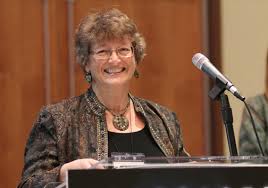Minor revolutions

The Bible: Wisdom Literature
Jewish Family Education with Candace R. Kwiatek, The Dayton Jewish Observer
In the recently released documentary, Three Identical Strangers, triplets separated and adopted by different families just months after birth unexpectedly discover they are siblings at the age of 19.
Despite growing up in different parenting and socio-economic circumstances, the brothers at first appear to be clones, but as the story develops, it’s obvious the homogeneity isn’t so clear-cut.
The documentary takes on a more sinister note when it turns out the boys were part of a decades-long clandestine experiment involving the deliberate separation and calculated adoption placements of more than five dozen sets of identical siblings.
Under the guise of studying the effects of parenting styles, the experiment was looking to provide an unequivocal answer to the question of whether genetics or environment plays the larger role in human development.
While science hasn’t yet given us a definitive answer to this age-old question, the Bible’s message is more clear-cut.
Through story, proverb, and law, the Bible asserts that nature and nurture are subservient to the individual’s free-will choices, which ultimately determine who the person becomes.
Contested even today, this idea was downright revolutionary in an ancient world where one’s ancestry, fate, and the arbitrary will of the gods were far more determinative of a child’s destiny than choice.

This isn’t the only revolutionary biblical message about children.
“Be fruitful and multiply and fill the earth,”God tells Adam and Eve, the first commandment in the Bible. Children are the builders of civilizations and futures in the physical sense as well as in the moral and cultural realms.
Thus it’s only logical that children are an element of God’s Covenant with Abraham to build an exemplary people: “I will multiply your seed as the stars of the heaven, and as the sand which is upon the seashore, and in your seed shall the nations of the earth be blessed (Gen. 22:17-18).”
The most revolutionary acknowledgment of children’s value, however, is found in the biblical genealogies.
“It would never have occurred to Sumerians to write (genealogies) down, because they accorded no importance to individual memories,” notes author Thomas Cahill in The Gifts of the Jews. “For them only impersonal survival, like kingship, like the harvest, mattered; the individual…could have no meaning.”
Biblical genealogies turn that notion upside down, highlighting the universal importance of children. They trace the descendants not just of the Israelite patriarch, but of humanity all the way back to Adam and Noah. Every child is a fountainhead of the future.
In the ancient world, “the eldest male in the family was the absolute ruler, with the power of life and death over every family member. He could exile, beat, sell, or even kill them with no legal ramifications,” write educators Lin and Don Donn.
Furthermore, infanticide was common: unwanted children were tossed off cliffs, left outdoors to die of exposure, or abandoned in the marketplace to be claimed as slaves.
“It was regarded as the parents’ right if they didn’t want the child,” world explorer and writer Jeffrey Hays explains.
Within the context of this ancient worldview, the purpose of the following biblical injunction becomes obvious: “If a man has a stubborn and rebellious son who will not hearken to his voice, then his father and his mother bring him to the city elders in the marketplace and say, ‘This our son is stubborn and rebellious, he will not obey our voice…’ And all the men of his city shall stone him and all Israel shall hear and fear. (Deut. 21:18-21).”
According to the rabbis of the Talmud, this law is hypothetical and was intended to be a deterrent only, inducing fear just by hearing it: the death penalty emphasizes the severity of the sin only.
But this revolutionary biblical law makes it clear that parents — father or mother, alone or together — do not have absolute, arbitrary control over the life and death of their child.
Instead, they must together turn to the court, which is impartial, deliberative, and constrained by legal and moral bounds. Children are not possessions like slaves or property — or lab rats.
The Bible has more than two dozen specific words that indicate young characters, from betulah (young woman) and ben (son) to yaldah (girl) and yonek (nursing baby). By highlighting dependency, vulnerability, growth and development, biblical vocabulary asserts that children are not adults.
This principle is all the more obvious in the Fifth Commandment, “Honor your father and your mother.”
Author and clinical psychologist Wendy Mogel explains, “(God) recognized that children are not naturally inclined to treat their parents with respect, so he commanded it…Parents are to be authority figures…holy stand-ins.”
In the ancient world, where gods were neither the source of morality nor role models to be emulated, this command to honor parents as quasi-divine representatives of an ethical-behavior-demanding divinity was revolutionary.
Equally radical today is the command’s implication that parents should not treat children like peers, seeking love and friendship rather than obedience and respect. Children are uniquely children.
Science seeks to revolutionize our understanding of the natural and physical worlds of the child and how they affect human development. The Bible seeks to guide the moral and ethical worlds of the child and revolutionize the consequent building of civilizations. Both minor revolutions are still in progress.
Literature to share
Judging Noa: A Fight for Women’s Rights in the Turmoil of the Exodus by Michal Strutin. This version of the biblical tale of Zelophehad’s daughters, who challenged the rules of inheritance, is a highly engaging story of ancient Israel and its culture in transition. Written with a naturalist’s eye for detail, the wilderness and cast of characters come to life. Reminiscent of The Red Tent, Judging Noa is historical fiction and modern midrash at its best.
Lone Wolf in Jerusalem by Ehud Diskin. Action-packed and gritty, Lone Wolf follows the idealistic David from Nazi-filled forests in Belarus to anti-immigration British in pre-state Israel. Filled with incredible exploits and suspense punctuated by flashbacks, David exhibits the bold determination, sense of mission, and courage that will define the new Israeli. Israel’s pre-state years — with myriad challenges and confusing militant Jewish groups — come alive.
Three Identical Strangers (the movie). This crime documentary focuses on a decades-long study exploring the influences of nature and nurture on human development. Led by the Austrian-trained psychiatrist Peter Neubauer, the experiment used more than 60 sets of identical siblings (primarily twins) separated at birth and raised in homes secretly chosen for similarities in all but parenting styles. The movie raises disturbing questions, beginning with why a Jewish adoption agency was intimately involved in such experimentation.
To read the complete October 2018 Dayton Jewish Observer, click here.


